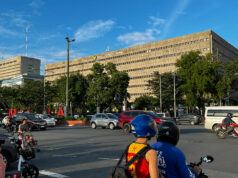Costs, weak currencies weigh on ASEAN PMI

PURCHASING activity, a proxy for the robustness of the manufacturing sector, exceeded the regional average in the Philippines but placed the country in the second tier among Association of Southeast Asian Nations (ASEAN), according to an IHS Markit survey conducted for Nikkei released on Tuesday.
The Philippine Purchasing Managers’ Index (PMI) was 51.9 in August, level with Indonesia, but well below the outlier reading of 53.7 posted by Vietnam.
A PMI reading above 50 points indicates expansion in purchasing and represents a leading indicator for upcoming manufacturing activity, as it reflects to a large extent the acquisition of raw materials for processing.
The regional average was 51, up from 50.4 in July, a change that signaled “marginal improvement.” Three of seven countries surveyed saw contractions.
Malaysia was fourth at 51.2, followed by Thailand at 49.9, Singapore at 48.5, and Myanmar at 46.4.

The Manufacturing PMI measure incorporates five subindices, with new orders weighted at 30%, followed by output (25%), employment (20%), suppliers’ delivery times (15%) and stocks of purchases (10%).
The report said August was marked by acceleration in new orders and output, as well as jobs growth and positive business confidence, but the overall improvement in manufacturing conditions across the region “was not as broad-based as those seen in previous months,” being weighed down by countries that saw conditions deteriorate.
It said that all countries reported higher costs in August, but Myanmar saw the steepest increase.
It noted that the Philippines, along with Indonesia, “also reported strong input cost inflation amid a weak exchange rate.”
“The Philippines registered the quickest pace of output charge inflation,” it added.
In the country-specific report released on Monday, it said that the Philippines saw stronger new-order growth, but production slowed due to elevated inflation pressures, especially on input costs such metals, sugar, rice, a weaker exchange rate, and tax hikes under the Tax Reform for Acceleration and Inclusion law (TRAIN).
The law, which became effective in January, raised tax rates for automobiles, minerals, tobacco, fuel and documentary stamps, among others; imposed new excise levies on sugar-sweetened drinks and removed some value-added tax exemptions, even as it reduced personal income tax rates as well as estate and donor tax rates.
“Manufacturing conditions across ASEAN improved at a faster pace in August, with growth in output and new orders both gaining momentum. Employment growth was also stronger,” Bernard Aw, Principal Economist of IHS Markit, was quoted in the report as saying.
He said that the improvement in the ASEAN region was driven by “a faster expansion in Indonesia, and Malaysia’s return to growth.
“At the same time, ASEAN manufacturers continued to struggle with increased cost burdens, particularly countries with a weaker exchange rate against the dollar, such as Myanmar, Indonesia and the Philippines,” he added.
“All these challenges raise questions over whether the growth pickup in August is sustainable in coming months,” Mr. Aw said. — Elijah Joseph C. Tubayan



